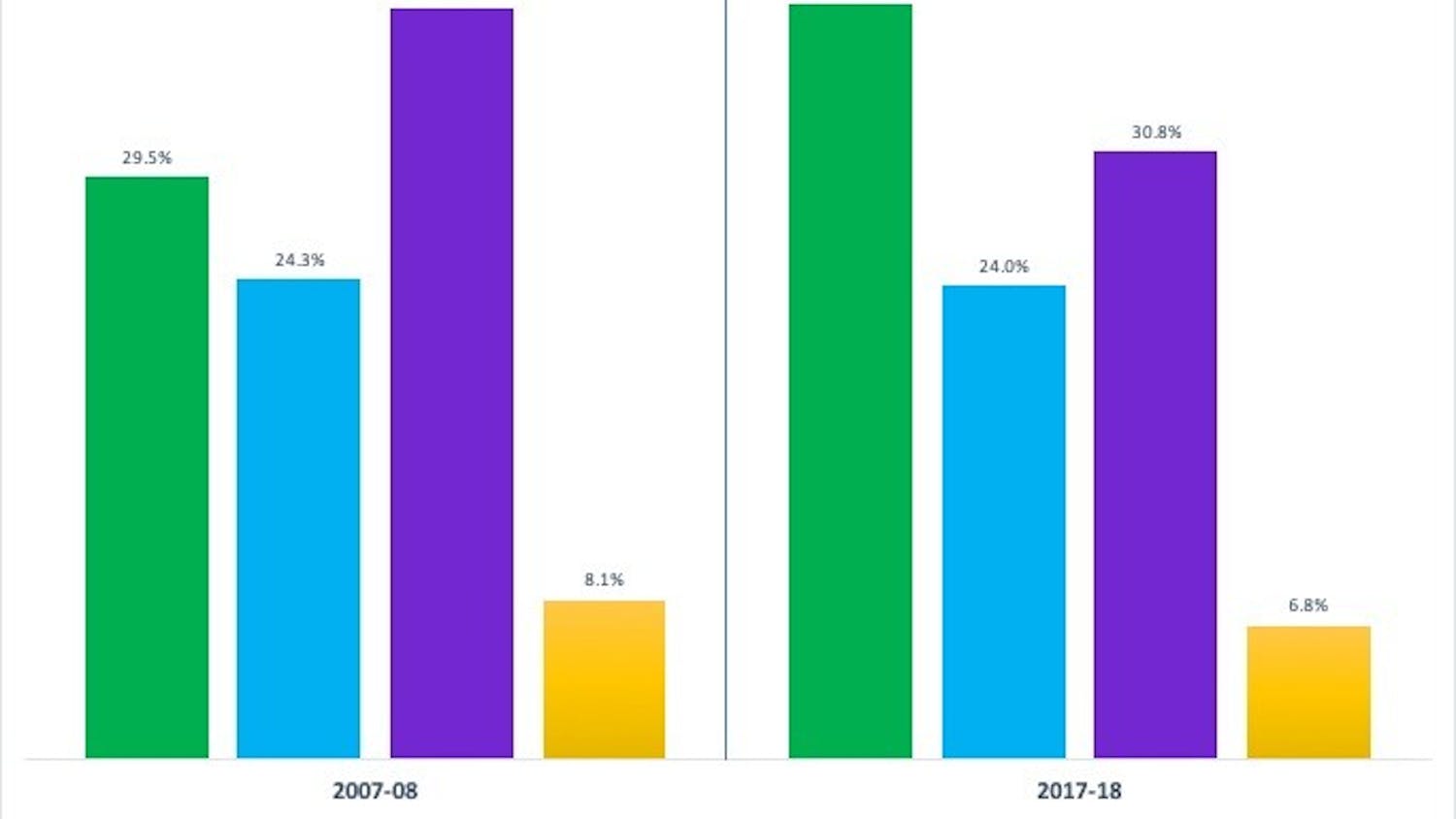As of early October, the Center for Disease Control reported that the vaping health crisis has claimed 26 lives and has been connected with over 1,000 reported lung injury cases. As this health crisis has gained traction in the media, more and more people may be rethinking their vaping habits, including those at Dartmouth, where use of e-cigarettes and vape pens is not uncommon.
Vaping devices function by heating water in order to produce an aerosol which is inhaled into the lungs. Products like Juul sell disposable nicotine pods which are equivalent to approximately one pack of cigarettes. These devices are intended to be used to help quit smoking, but have become popular with younger demographics. In 2018, 3.6 million youth used e-cigs. The nicotine in e-cigs is a strongly addictive substance, which means that users of these products are at risk of becoming addicted.
According to the CDC, it has become popular for users to buy pods that contain a mixture of nicotine, THC (the compound in marijuana that produces the “high”), CBD oils and other additives. These pods are referred to as “rigged pods,” and are typically bought off the street, raising the risk to users as they are even more unclear of what exactly they are inhaling.
Of the over 1,000 reported cases of injury, all patients have reported use of some sort of vaping device, with many reporting use of THC-containing products. Although most individuals with lung injury are known THC users, many report using nicotine as well, and some claim to exclusively use nicotine-containing products. Despite these commonalities, there is no one device that has been connected to each case, and the CDC believes it is possible that the outbreak has more than one cause.
Even with all this information, some Dartmouth students are not worried about their vaping habits. A male member of the Class of 2023, who chooses to recreationally use a Juul and has asked to remain anonymous, said that he is not planning on quitting anytime soon.
“Here’s my go-to line: I understand that I should quit, but am I going to? I’ve done a lot of research on the topic because of the news reports, and it’s the people using rigged pods [who are experiencing harm],” he said.
There is a gaping lack of research about the long-term side effects of using a Juul. Additionally, the emphasis the CDC has placed on the role of THC and rigged pods has convinced some Juul users who exclusively use nicotine pods that they are not at risk of lung injury. Without research to support how harmful Juuling is and consequently a convincing enough reason to quit, Dartmouth students may be at risk of developing a nicotine addiction with continued use.
Brian Bowden, lead counselor at the Student Wellness Center, shared his thoughts on this student’s perspective:
“That’s a common young adult thing to feel and think — that it’s not going to happen to me,” Bowden said. “The research and the injuries associated with the major pulmonary dysfunction have been because of some type of additive with THC, but all the other vapes have chemicals in them that are dangerous to one’s lungs.”
He continued to explain that he believes with more information coming out about the health crisis, students will begin to make smarter decisions regarding their use of vaping devices.
At a forum held at the College in September concerning the vaping health crisis and the specific health risks to New Hampshire’s youth, Sen. Jeanne Shaheen (D-NH) discussed a proposed bill that would require e-cigarette companies to fund prevention efforts such as research about the side-effects caused by their products. This approach resembles that used on tobacco companies, which led to many successful campaigns against smoking.
Jordan Koehler ’23 agreed that such an approach may be the most successful way to combat the vaping health crisis, rather than an effort to completely outlaw e-cigarettes.
“People are aware of the health risk,” Koehler said. “Yes, people are dying, but people die from cigarettes, too. Cigarettes aren’t about to be outlawed any time soon, so we can’t expect vapes or Juuls to be outlawed any sooner.”
Koehler continued that although she does not use Juul or other vaping devices, she said she thought that many users look at vapes as a safe alternative to cigarettes because of the lack of research showing the long-term side effects of vaping.
Similarly, Ana Marquez Pereda ’23 expressed that even with the possible connection between vaping and lung injury, the lack of hard evidence is not enough to curb users of their addiction.
“I’m not surprised by the crisis because regular smoking does damage to the lungs, so it makes sense that vaping would do the same thing,” Marquez Pereda said. “Some people might stop vaping because of the reports, but a lot will probably keep doing it because it’s an addiction.”
In line with the concept that many young Juul users are becoming addicted to nicotine, Consumer Notice reports a 900 percent increase in the amount of teens vaping from 2011 to 2015. With these numbers in mind, it is not shocking that among 1,043 patients who reported lung injury to the CDC, 80 percent of the patients are under 35 years old. Moreover, the results of a survey conducted by The Dartmouth in early 2018 indicated that 10 percent of the 862 College students that responded owned a Juul. In light of this data, it is not surprising that Dartmouth College Health Service is trying to combat the use of vaping devices.
A page on the Dartmouth Health Service website entitled “The Real Cost: Vaping, Juuling & E-cigarettes” provides visitors with a general overview of vaping including a list of some of the known ingredients in e-cigarettes and a video highlighting the dangers of vaping. Additionally, the page provides information for students who may need help quitting.
It seems that the vaping health crisis may not have an immediate effect on Dartmouth students’ use, but with the number of reported deaths increasing, e-cigarette users at the College may want to reconsider the dangers of this habit.




